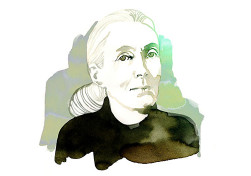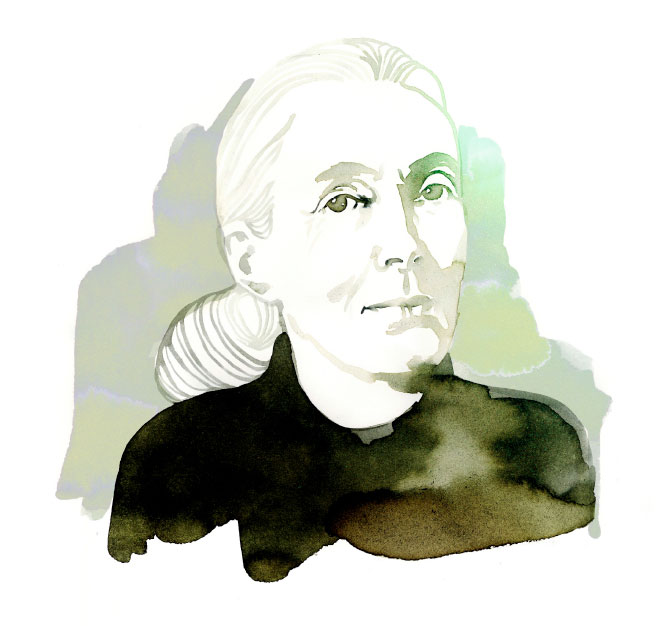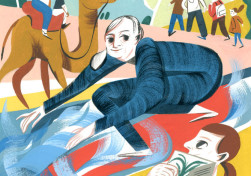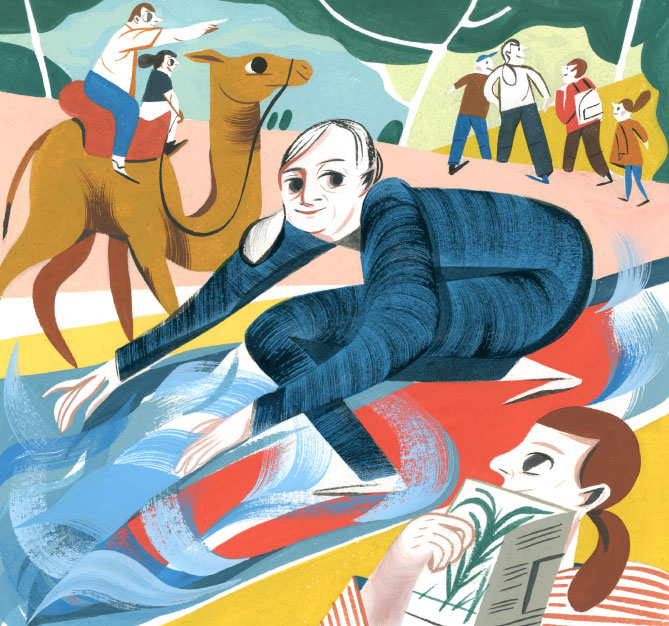1. Cornwall, England, 1939
When I was four, the Second World War broke out, so I was taken by my uncle from London, where we lived, to Cornwall. One morning I collected a bucket of “shells”, only realizing that they were living snails when they escaped all over the living room. I was so upset that my family had to turn everything upside down to find them all, so I could take them back to the sea.
2. Germany, 1952
After the war, my mother dispatched me to Germany to teach me that not all Germans were evil. The country had been divided into four, and my uncle and aunt lived in the British section. They introduced me to a family whose three children I was to teach English. I was on my own, had never left home before, and the mother in the house was horrible and treated their dogs very badly. I was terribly homesick, but I rode a lot with the youngest daughter and learned to rely on my own resources.
3. England to Nairobi, 1957
Going off to Africa to stay with a school friend was probably the most exciting journey of my life. I’d earned money as a waitress to buy a liner ticket to Kenya, and for 21 days I had a fantastic time, sharing a cabin with three other girls and flirting with all the officers. The really magic part, though, was leaving grey skies behind and seeing flying fish and dolphins, and smelling exotic flowers and spices wafting from the land.
4. Kenya, 1957
Having read so much about Africa, when I landed I felt I was home. I’d got a job as secretary to Louis Leakey, the paleoanthropologist. In the Serengeti in those days, there were no roads; to find our way to the Olduvai Gorge, we retraced tracks from the year before. We put up tents and camped. The nearest water was 40 miles away, so we had just one glass each to wash ourselves per day. I almost bumped into a rhino and was followed by a lion, and in the three months there, I saw only a few other people: Borana herdsmen.
5. Gombe, Tanzania, 1960
Leakey had found me funding to study chimpanzees in Gombe, on Lake Tanganyika, but the officials there insisted I had a companion, so my amazing mother came with me. After driving for days in our Land Rover and camping at night, we reached Kigoma, only to discover that the Belgian Congo had erupted in civil war and there were traumatized refugees everywhere. Of course, we had to help; one day I must have made 2,000 sandwiches. When we eventually got to Gombe, three weeks later, I remember climbing the mountain overlooking the lake and hearing baboons and birdsong, and smelling grass and woodsmoke in the air. It was magical. I put my bed under a palm tree, and felt I had arrived.
6. Republic of Congo, 2002
Michael Fay – the brilliant biologist who walked more than 2,000 miles across central Africa – found a forest surrounded by swamp where animals had never been exposed to people, and wanted me to go and see it. It was an exhausting journey. My feet were so blistered I had to bind them with masking tape. We were up to our waists in water and mud. But we saw chimps, monkeys and gorillas,
and the area is now a national park: the Goualougo Triangle, known as “the
last Eden”.
7. Alaska, 2013
Getting to Alaska took days on several planes, the last one a four-seater that landed on a beach where Disney made that wonderful film, Bears. On our very first night we saw them: several grizzlies, fishing for salmon and digging for clams. A mother and two cubs were as close to us as just across a room, and paid absolutely no attention to us. They were absolutely beautiful. That film, I think,
is the best Disney has made.
Jane Goodall’s latest book, Seeds of Hope, is published by Grand Central. She leads the worldwide Roots & Shoots youth-led community action and learning program



